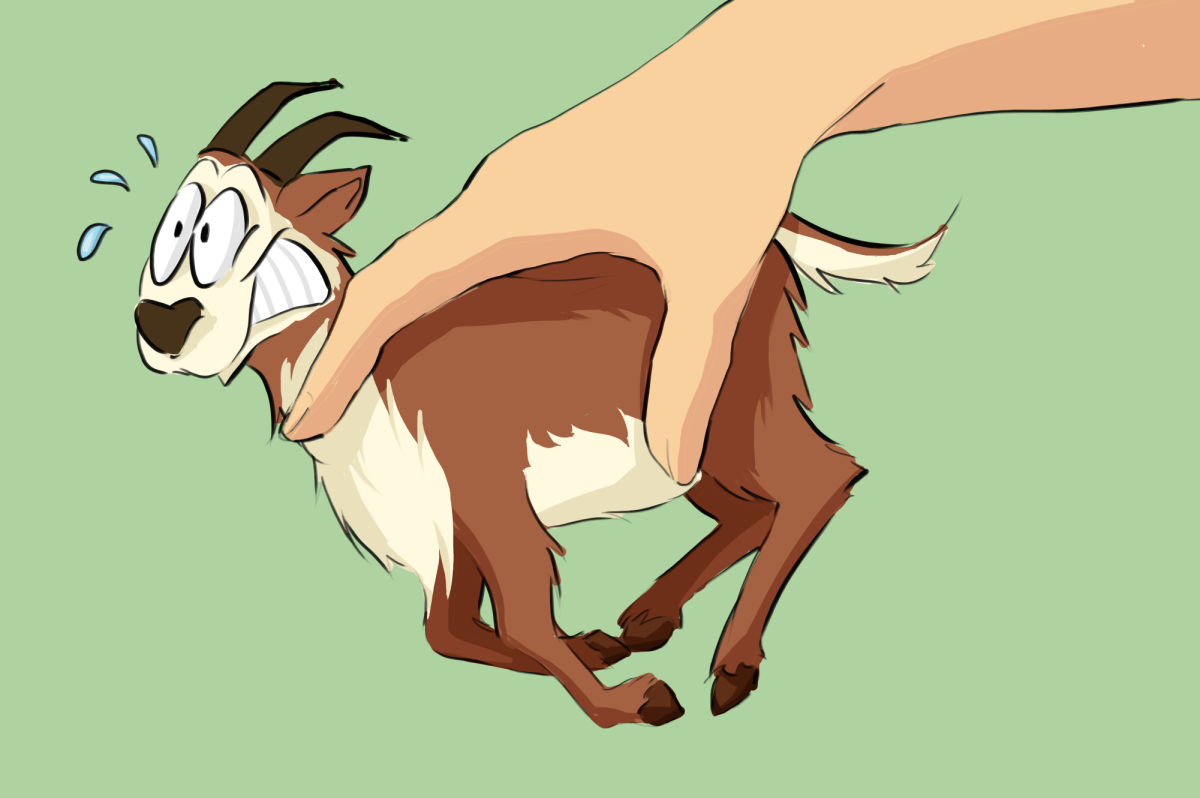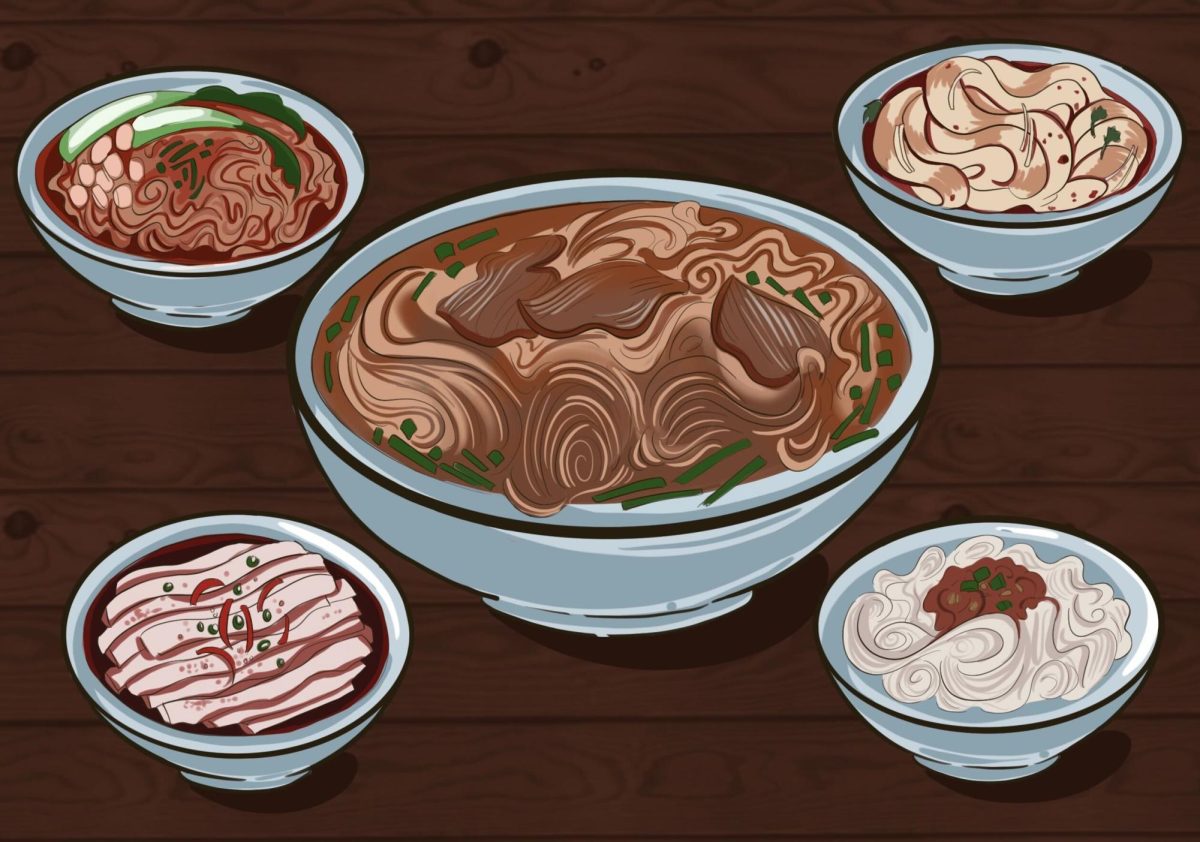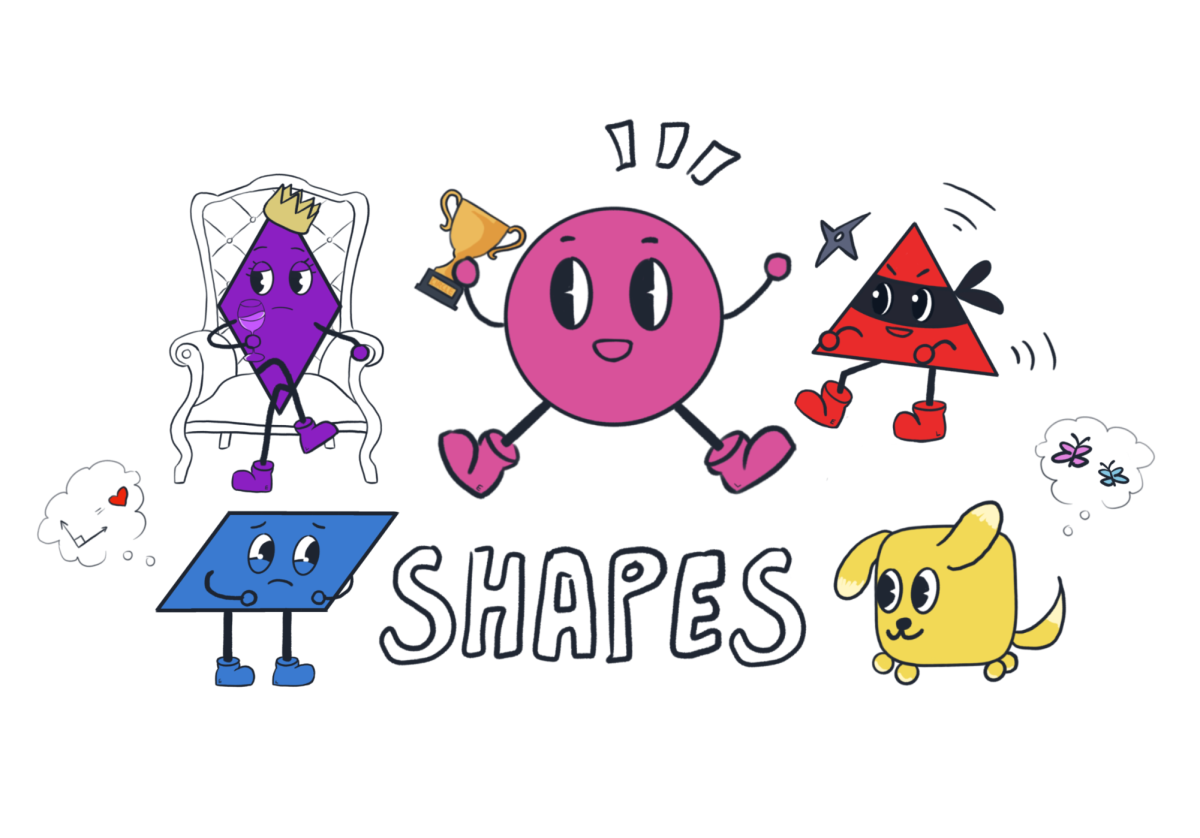Idioms are a delightful part of English: little linguistic puzzles that somehow make perfect sense even when they absolutely shouldn’t. There’s just something fun about saying things that don’t logically add up but work because we all agree on their meaning, with an unspoken agreement among speakers to share in the same quirky, figurative shorthand. Without this shared understanding, phrases like “kick the bucket” or “spill the beans” would sound downright nonsensical. Here are my top five idioms that I try to use in my everyday life.
5. The elephant in the room
This idiom captures the way an unresolved issue looms over a discussion, demanding to be addressed. It’s a metaphor for unspoken truths, but it’s also just fun to say. Whenever I use it, I feel like I’m adding a bit of playful absurdity to an otherwise serious conversation. It’s an invitation to confront awkwardness with humor!
When I hear this idiom, I imagine the absurd visual of an elephant standing awkwardly in an actual room while everyone avoids looking at it. It’s a phrase that’s simultaneously serious and ridiculous, which makes it unforgettable. The image also reminds me of The Little Prince and the drawing of an elephant swallowed by a boa constrictor. There’s something delightfully surreal about this idea—a massive, undeniable creature just hanging out, ignored.
4. Beating around the bush
The visuals on this one are immaculate. Whenever I hear or use this idiom, I picture someone standing in front of a berry bush, holding a baseball bat, and aggressively whacking the ground around the bush instead of dealing with whatever is inside it. What’s in the bush? Who knows! That’s not the point. The phrase is a playful yet precise way to call out whoever you are talking to, which makes it a favorite of mine, and one I use probably more than I ought to.
But diving deeper: why a bush? Historically, the phrase refers to hunters driving animals out of bushes, a careful process that requires patience. The modern usage flips this on its head, usually used to express one’s lack of patience for various hindrances or stonewalling. It’s a great example of how idioms evolve over time—what once described careful effort now calls out the lack of directness. And yet, the imagery remains as vivid as ever.
It’s a great way to break the tension when someone is being evasive. Plus, it’s just fun to imagine yourself as a metaphorical bush-whacker.
3. Mouth idioms (all of them)
I could not choose a favorite, so in third place are all idioms having to do with mouths, teeth or the like. “By the skin of my teeth” perfectly captures the stress of barely making it to whatever goal you had; I use it mostly in reference to my arrival to my first-period classes. It’s such a visceral image—skin on teeth? Ew. But it works! “Armed to the teeth” makes me think of someone’s grandparent’s dentures in medieval gear, wonderfully charming.
Then there’s “tooth and nail,” which feels intensely determined, and “cat got your tongue,” which is delightfully sassy and almost accusatory.
Why are our mouths such a central theme in idioms? Maybe it’s because they are universal and essential; they’re part of survival, self-expression, and even conflict. Or maybe it’s just because they’re fun to talk about! Either way, these idioms tap into something primal yet playful, and that’s why I keep using them.
2. Pushing the envelope
This idiom is so abstract, and that’s what makes it amazing. What envelope? Why are we pushing it? Are we trying to mail something that doesn’t quite fit? Despite the mystery, the meaning—to test limits and go beyond expectations—is crystal clear. It’s a perfect example of how idioms can take a phrase that should be confusing and make it intuitive.
The origins of this phrase come from aviation, where “pushing the envelope” referred to testing the limits of an aircraft’s performance. However, I doubt anybody nowadays thinks of anything airship-related when uttering this phrase, but that technical origin adds a layer of coolness to the idiom. Every time I hear it, I imagine someone physically pushing a giant envelope across a table, straining to move it just a little further. It’s nonsensical, sure, but that’s what makes it memorable.
Honorable mention: Up the creek with no paddle
This one deserves a quick shoutout because it’s such a vivid way to describe being stuck in a tough situation. You’re in a boat. There’s a creek. You have no paddle. It’s bad. It’s an idiom that manages to convey panic and humor in equal measure.
1. Get my goat
Finally, my all-time favorite: get my goat. This idiom is everything I love about language. It’s playful, it’s alliterative, and it perfectly encapsulates the feeling of irritation. This is maybe the only one of the list that I don’t have an exact mental image regarding a literal interpretation of the phrase, but I think that just goes to prove how wonderful of an idiom it is.
The origin of this phrase is debated, but one theory ties it to horse racing, where goats were kept with racehorses to calm them down. If someone stole the goat, the horse would get agitated, ruining its chances of winning. Whether or not that’s true, it’s a delightful backstory that adds depth to an already fantastic idiom.
What I love most about “get my goat” is how specific yet flexible it is. It’s not just about annoyance—it’s about a kind of playful exasperation that’s perfectly calibrated for lighthearted gripes. No matter how forceful my intonation is, using this phrase nearly always makes the conversation more funky! It’s a phrase that lets you complain without taking yourself too seriously—the essence of idiomatic whimsy.


















![“[Building nerf blasters] became this outlet of creativity for me that hasn't been matched by anything else. The process [of] making a build complete to your desire is such a painstakingly difficult process, but I've had to learn from [the skills needed from] soldering to proper painting. There's so many different options for everything, if you think about it, it exists. The best part is [that] if it doesn't exist, you can build it yourself," Ishaan Parate said.](https://harkeraquila.com/wp-content/uploads/2022/08/DSC_8149-900x604.jpg)




![“When I came into high school, I was ready to be a follower. But DECA was a game changer for me. It helped me overcome my fear of public speaking, and it's played such a major role in who I've become today. To be able to successfully lead a chapter of 150 students, an officer team and be one of the upperclassmen I once really admired is something I'm [really] proud of,” Anvitha Tummala ('21) said.](https://harkeraquila.com/wp-content/uploads/2021/07/Screen-Shot-2021-07-25-at-9.50.05-AM-900x594.png)







![“I think getting up in the morning and having a sense of purpose [is exciting]. I think without a certain amount of drive, life is kind of obsolete and mundane, and I think having that every single day is what makes each day unique and kind of makes life exciting,” Neymika Jain (12) said.](https://harkeraquila.com/wp-content/uploads/2017/06/Screen-Shot-2017-06-03-at-4.54.16-PM.png)








![“My slogan is ‘slow feet, don’t eat, and I’m hungry.’ You need to run fast to get where you are–you aren't going to get those championships if you aren't fast,” Angel Cervantes (12) said. “I want to do well in school on my tests and in track and win championships for my team. I live by that, [and] I can do that anywhere: in the classroom or on the field.”](https://harkeraquila.com/wp-content/uploads/2018/06/DSC5146-900x601.jpg)
![“[Volleyball has] taught me how to fall correctly, and another thing it taught is that you don’t have to be the best at something to be good at it. If you just hit the ball in a smart way, then it still scores points and you’re good at it. You could be a background player and still make a much bigger impact on the team than you would think,” Anya Gert (’20) said.](https://harkeraquila.com/wp-content/uploads/2020/06/AnnaGert_JinTuan_HoHPhotoEdited-600x900.jpeg)

![“I'm not nearly there yet, but [my confidence has] definitely been getting better since I was pretty shy and timid coming into Harker my freshman year. I know that there's a lot of people that are really confident in what they do, and I really admire them. Everyone's so driven and that has really pushed me to kind of try to find my own place in high school and be more confident,” Alyssa Huang (’20) said.](https://harkeraquila.com/wp-content/uploads/2020/06/AlyssaHuang_EmilyChen_HoHPhoto-900x749.jpeg)










